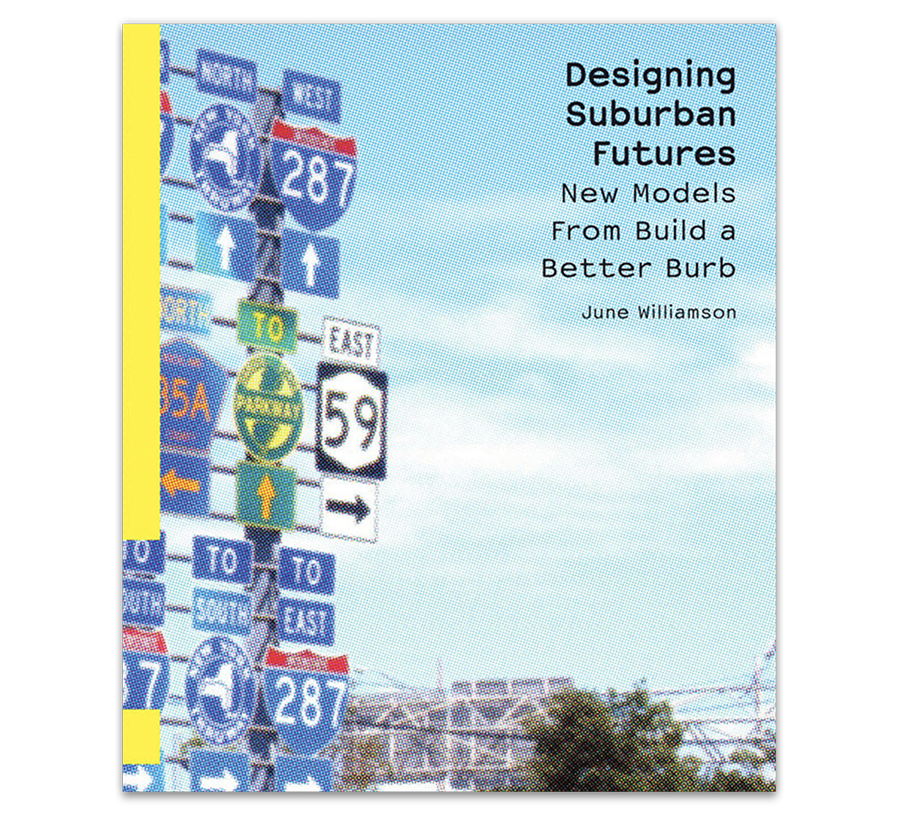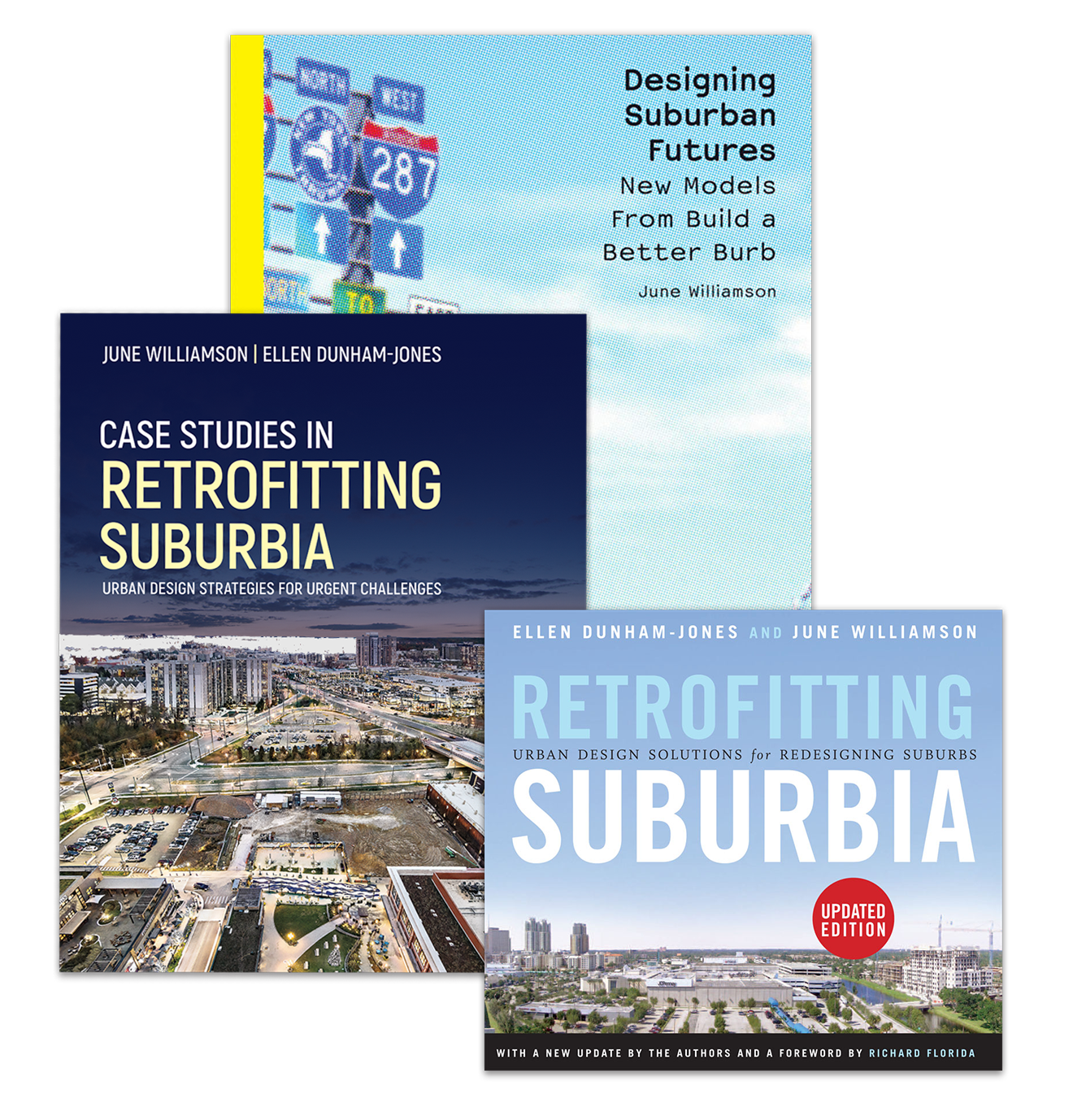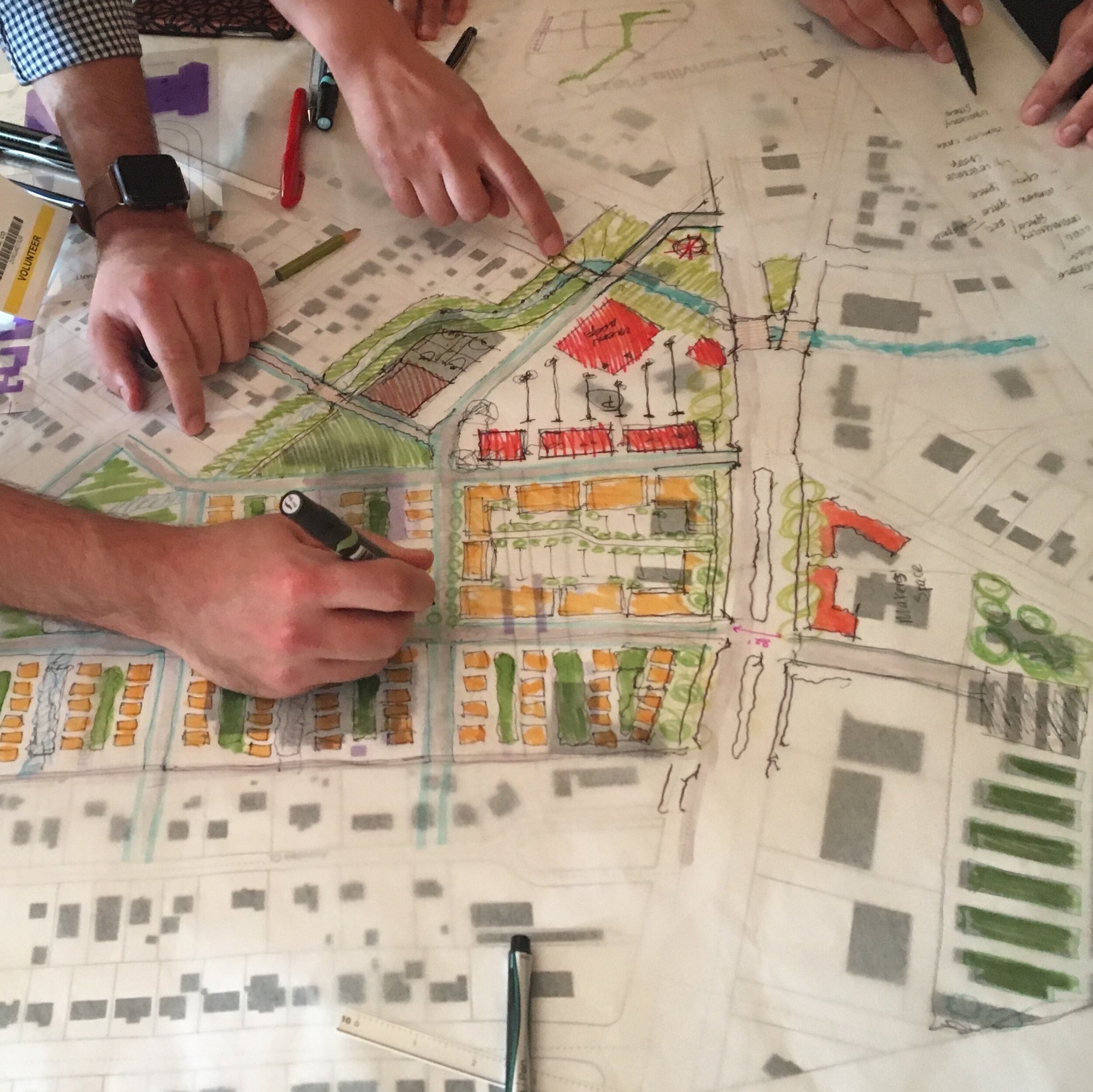
Participants sketching in a retrofitting suburbia workshop. June and Ellen regularly offer workshops for designers, urban planners, and students.
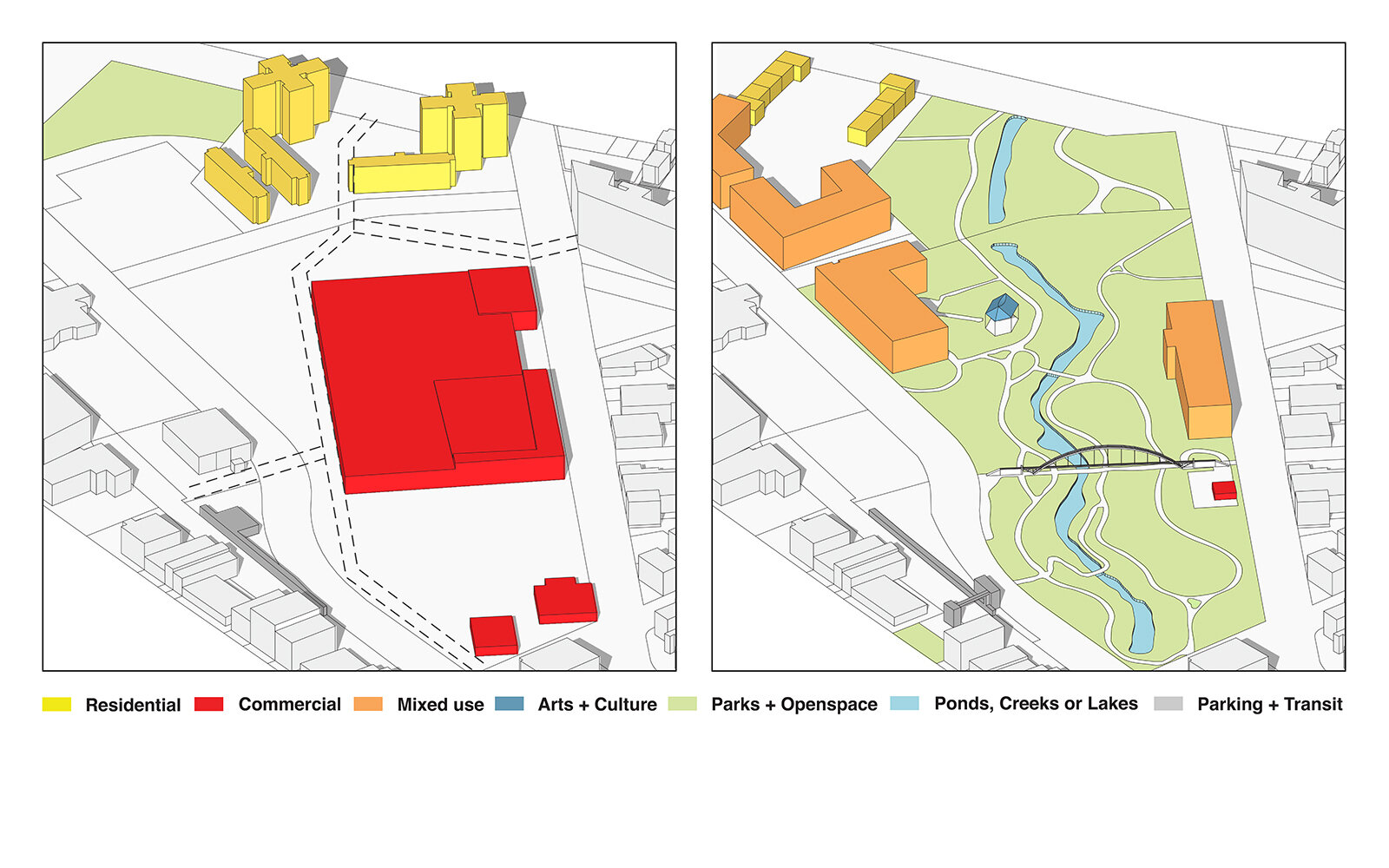
Built over a culverted creek that flooded regularly, the Meriden Hub mall has become Meriden Green: a flood-protection stormwater park that includes new and relocated housing.
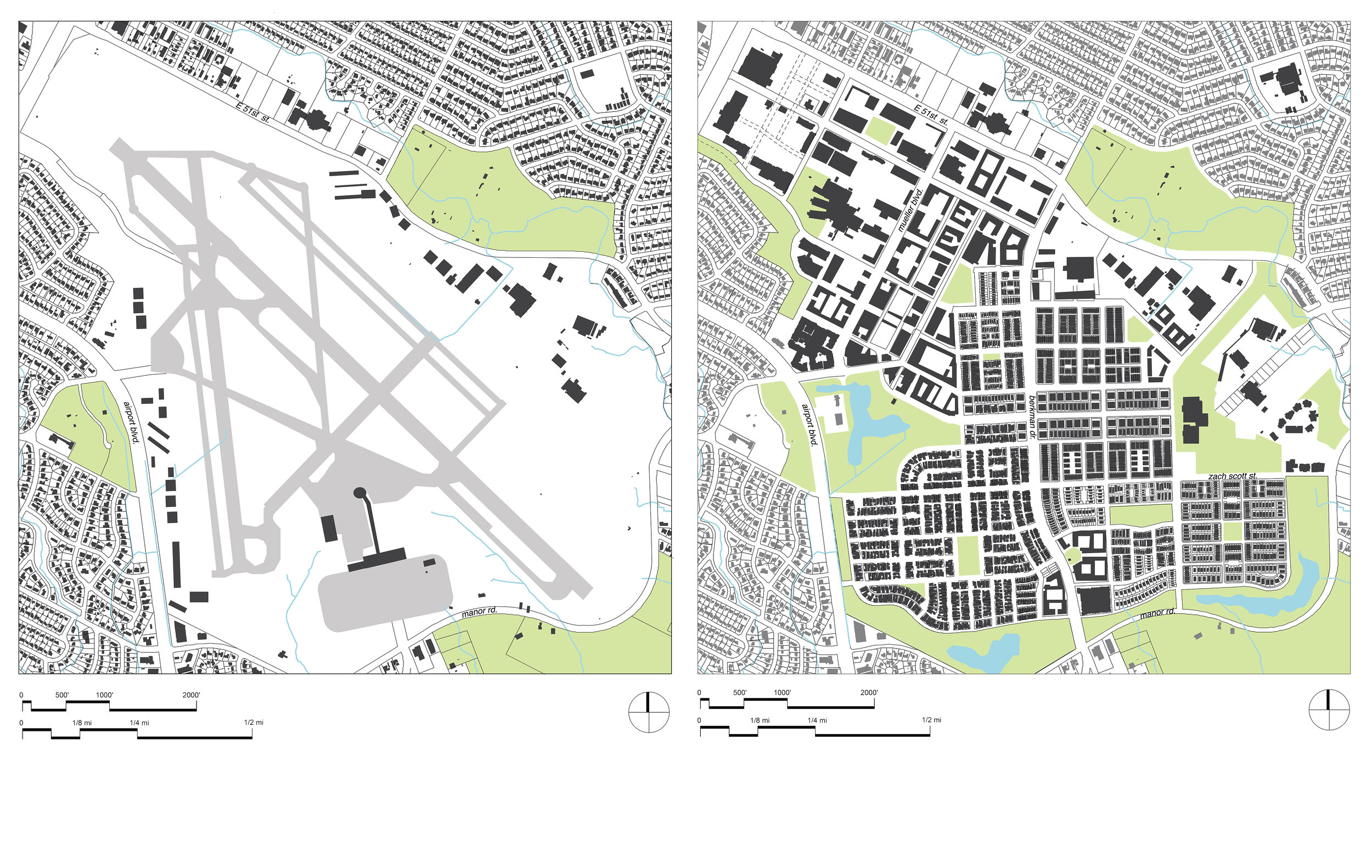
Before and after figure-field diagrams of Mueller, TX, a mixed-use, mixed-income, energy- and water-efficient redevelopment of a decommissioned airport.

Delano Stewart Plaza, flanked with mixed-use buildings, replaced parking lots and brownfields in Wyandanch, a lower income hamlet in Suffolk County, NY.
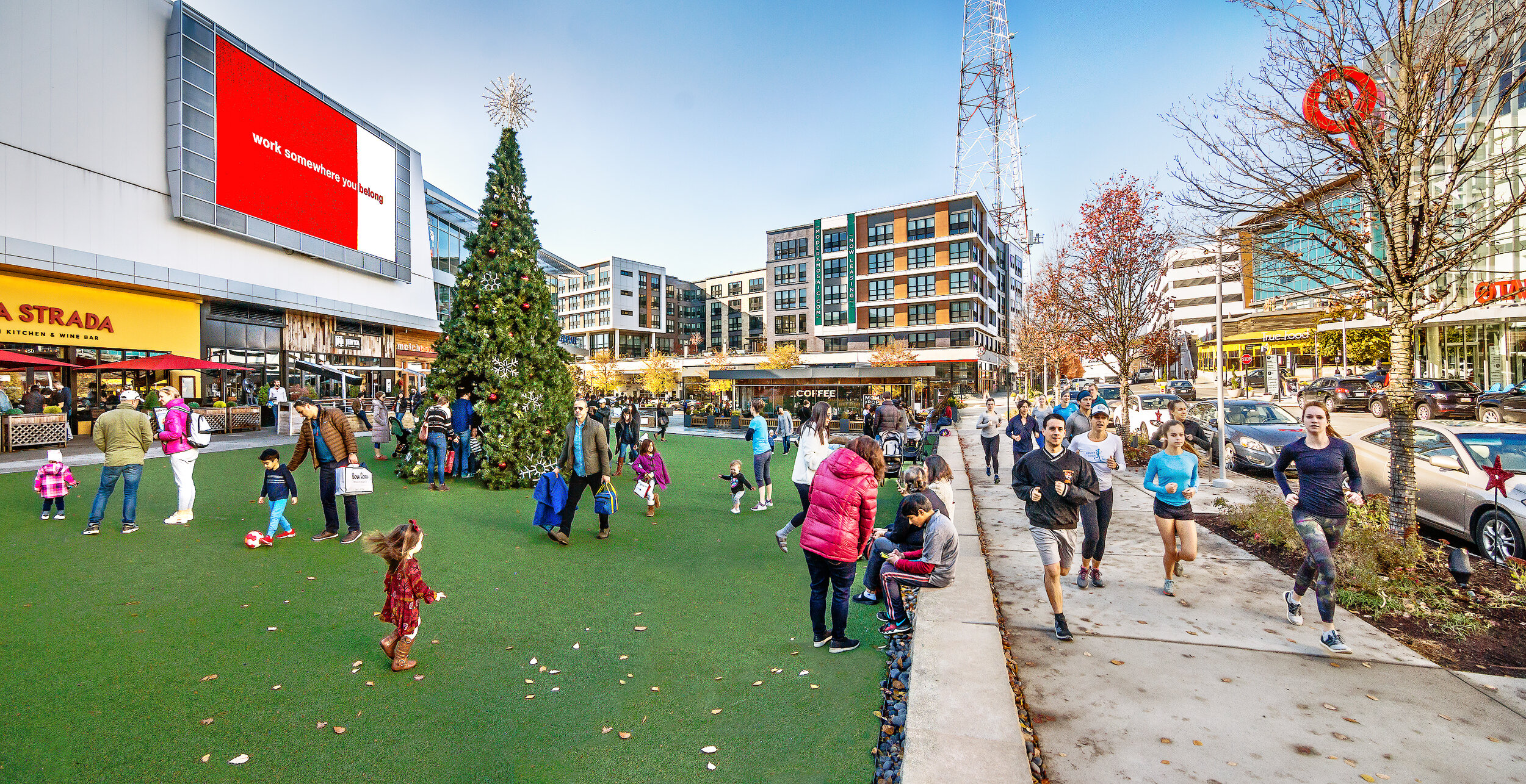
The mixed-use redevelopment of a cinemaplex into The Mosaic District centers on a programmed town green enjoyed by residents and neighbors.
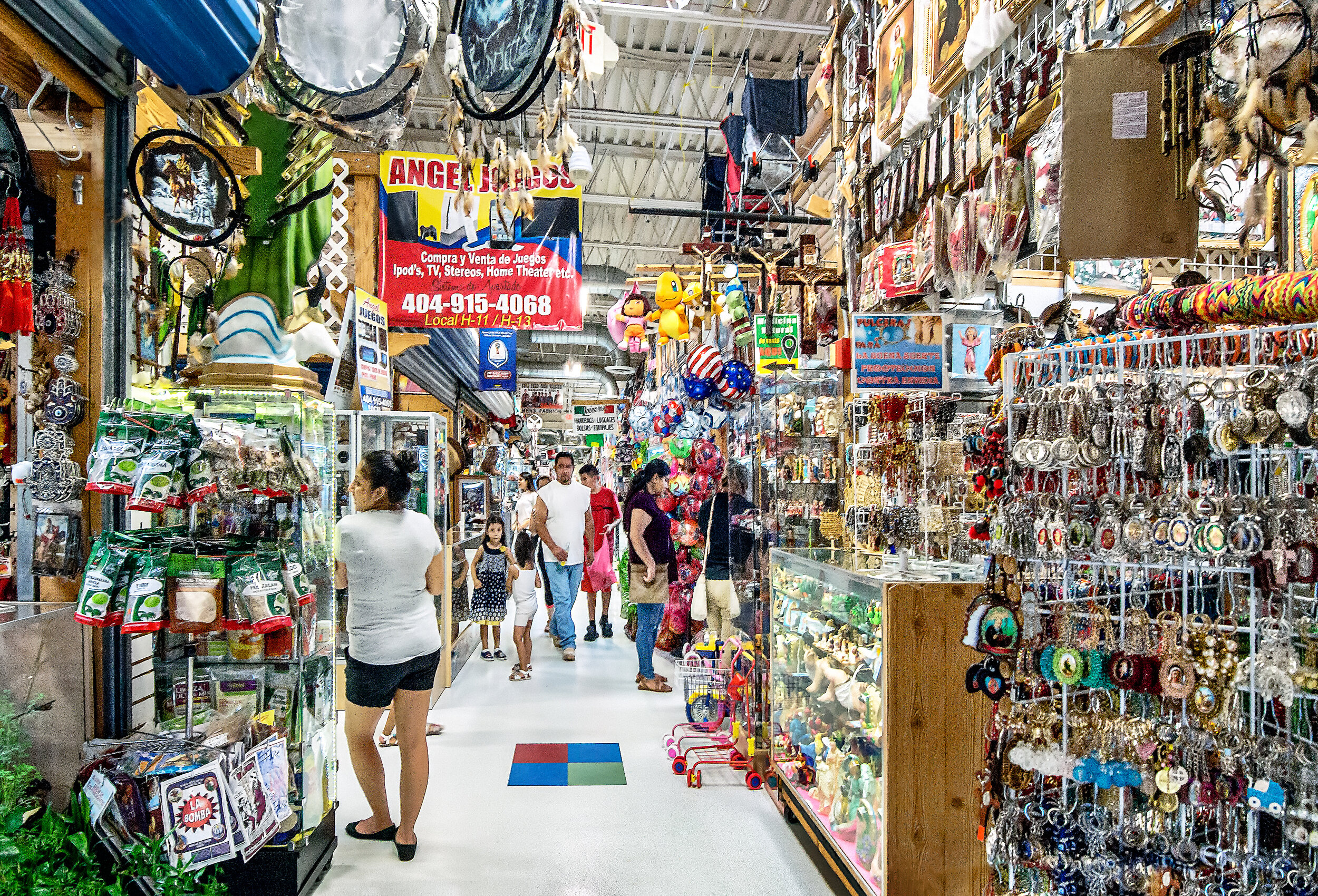
As part of its retrofit into an ethnic community hub, an anchor store at the renamed Plaza Fiesta mall near Atlanta was reinhabited with small booths for mostly immigrant-owned and run businesses.
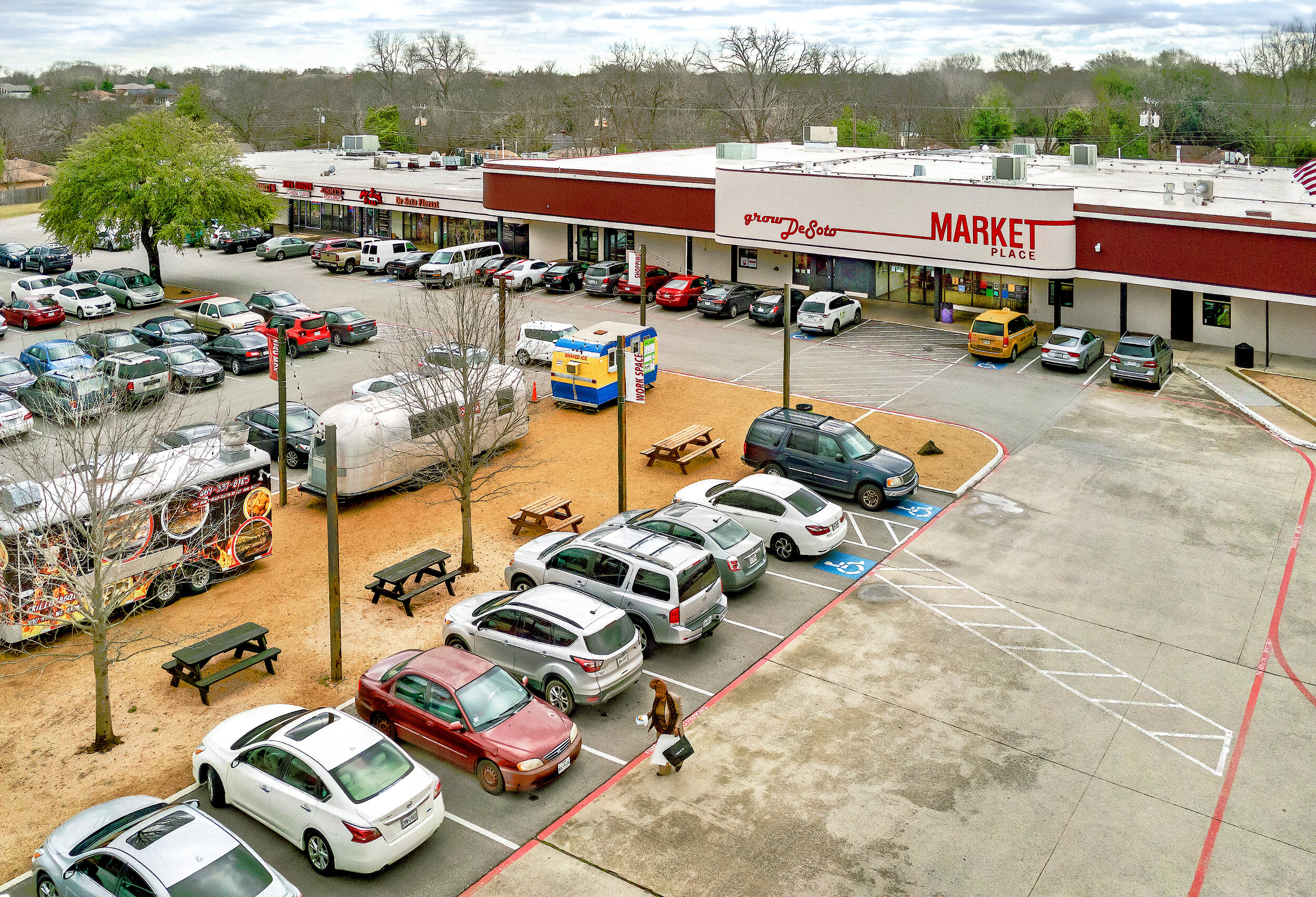
Grow DeSoto Market has reinhabited a strip mall with a small-business incubator, regreened a swath of the parking lot into a twinkle-lit networking space.
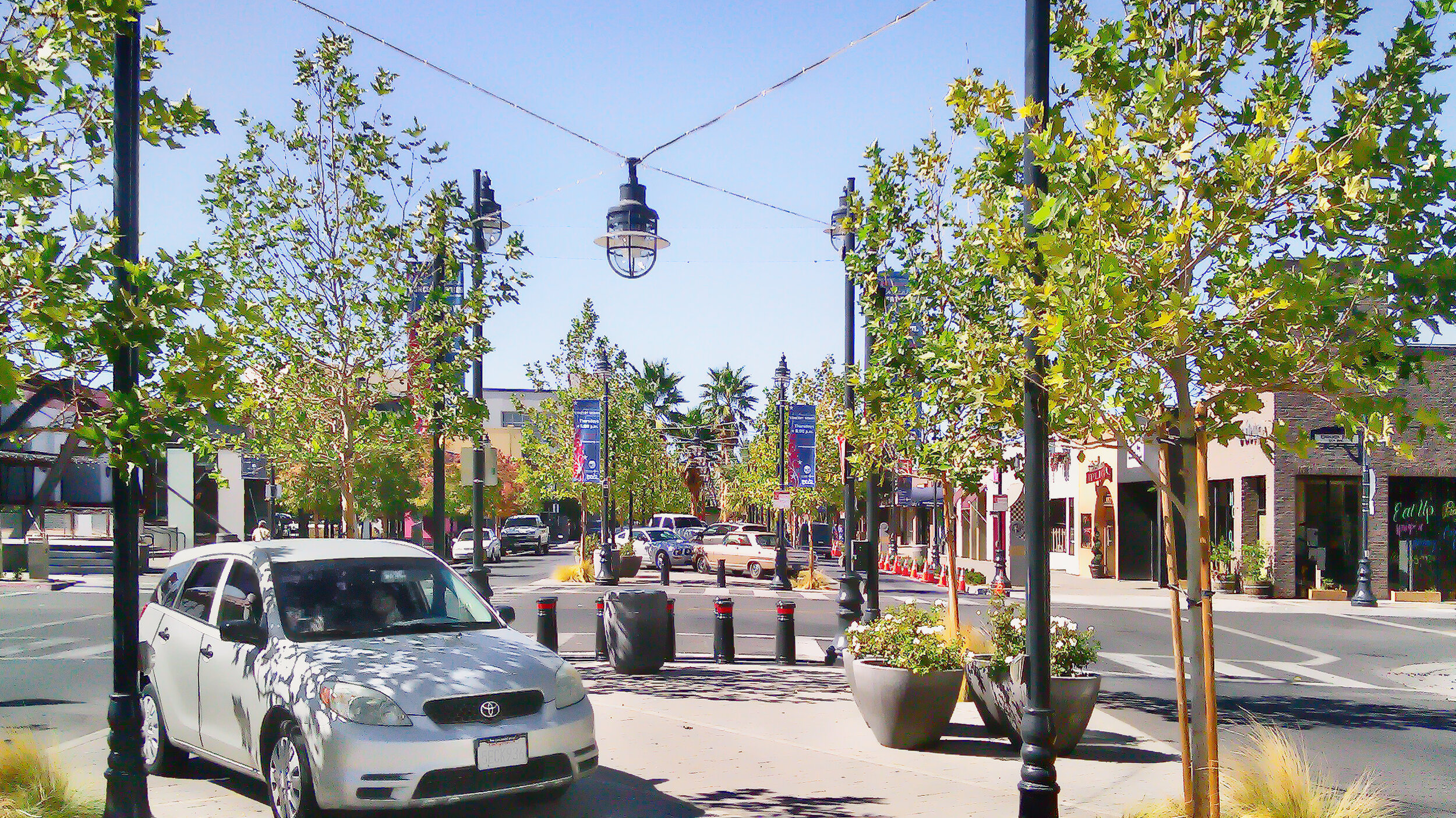
Now thriving and renamed The BLVD, Main Street in Lancaster, CA, was retrofitted from five travel lanes to two with parking/event space in the middle.









